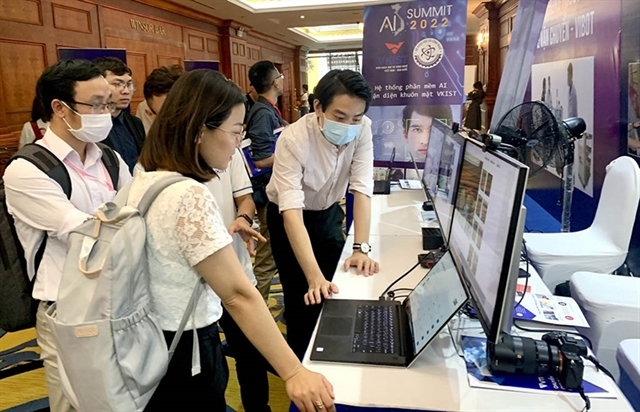Vietnamese businesses lead global shift toward AI hiring
Around 91% of Vietnamese business leaders are considering hiring for artificial intelligence (AI)-specific roles, surpassing the global average by 13 percentage points, according to Microsoft Vietnam’s latest report released on June 12.

The “2025 Work Trend Index” — based on a survey of 31,000 people across 31 countries, including 1,000 in Vietnam — reveals that Vietnamese companies are at the forefront of AI adoption in the workplace.
The report combines insights from Microsoft 365, LinkedIn hiring trends and perspectives from AI start-ups, economists and academics. It highlights a widening gap between workforce capacity and rising productivity demands.
In Vietnam, 67% of business leaders surveyed said increasing productivity is a priority, yet 84% of employees reported lacking the time and energy to complete their tasks, both figures notably higher than the global averages of 53% and 80%, respectively.
“AI is becoming a sustainable resource for businesses — abundant, essential and scalable,” the report stated, adding that it also allows organisations to overcome limitations in workforce size and expertise.
According to the study, 95% of Vietnamese leaders expect to use digital labour to expand their workforce within the next 12 to 18 months, compared to 82% globally. Furthermore, 83% believe AI can empower less experienced employees to take on strategic roles more quickly.
The top five areas expected to see AI investment in the next six to 12 months include product development, customer service, marketing, cybersecurity and financial performance. Other potential fields include business forecasting, customer insights, law, training and supply chain management.
At the report’s launch, General Director of Microsoft Vietnam Nguyen Quynh Tram said digital labour will reshape even the most established enterprises and give rise to entirely new business models.
Microsoft’s analysis of LinkedIn data shows that AI start-ups are hiring at twice the rate of major tech companies. Globally, 78% of business leaders are evaluating AI-related hiring, while in Vietnam the figure rises to 91%.
“Countries in the Asia-Pacific, including Vietnam, are poised to gain a competitive edge by embracing AI early,” the report noted, adding that just as the internet ushered in a wave of knowledge jobs, AI is now creating entirely new roles.
New AI-driven roles emerging in Vietnam and globally include AI trainers, agent and data specialists, ROI analysts and AI strategists for marketing, finance and customer support.
Experts recommend that employees build AI skills and that companies support this transformation through tools and training. According to the report, AI literacy and digital skills are the top two workforce strategies moving forward.
Basic AI knowledge is now considered one of the five most essential skills in the new world of work — alongside conflict resolution, adaptability, process optimisation and creative thinking.
“AI has opened access to knowledge that was once only available to large corporations, enabling individuals and businesses to succeed regardless of their size or technical background,” Tram said.
“However, technology only delivers value when people are ready to embrace it. Leaders must invest not only in technology but also in digital mindset, skill-building, and collaboration between humans and AI. This is the key to unlocking Vietnam’s full potential in the AI era,” she added.



